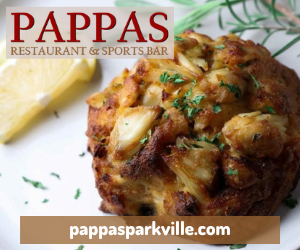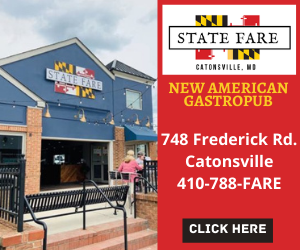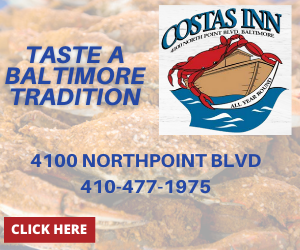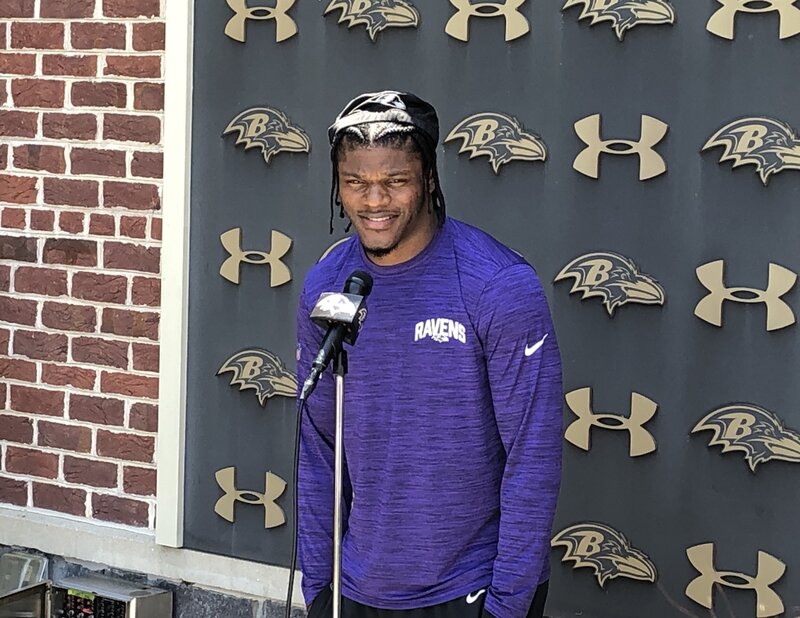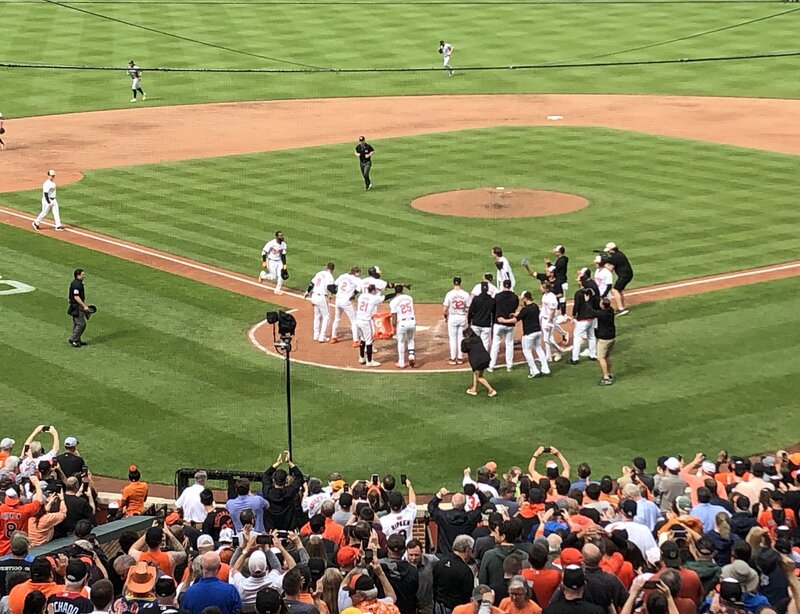At one pnt during his ascendance into massive personal wealth, Bisciotti dabbled with the notion of buying the Minnesota Vikings in 1998, but knew his family wouldn’t move to the Midwest, and he felt that it wouldn’t truly make him happy. It would’ve been a great investment. Red McCombs wound up making $350 million in profit by essentially flipping the team in the same deal that Bisciotti turned down.
There was also a dalliance with owning the Florida (now Miami) Marlins, but the rules of baseball and the lack of payroll parity made him squeamish about the amount of losing his team would do on the field, and he ultimately thought he wouldn’t be truly happy owning a baseball team in Florida.
“When Moag came to me to present the Ravens deal I was actually shocked,” Bisciotti said. “I really thought Art was set after the move. Angelos bought the Orioles in ’93 and Modell came in ’96. I didn’t really see any way I’d ever have an option to own my hometown team.”
He was, at heart, not just a sports nut. He was a Baltimore sports nut. He was a guy who knew the entire history of the Orioles. A guy who remembered being on the field with Johnny Unitas as a kid in Westminster when the Baltimore Colts held training camp there in the 1960’s. He had the pictures on the walls of the den of his multi-million dollar home on the Severn River, almost as if those old players and memories were family members. And in 1999, he was mostly known as a regularly-seen, passionate fan on the court of every Maryland Terrapins men’s basketball home game as a donor and occasional hell raiser for the “Carolina referees” just a few feet from his friend Williams, who also knows a little about sports competition and fire.
“I would have bought the Maryland Terrapins,” Bisciotti once said jokingly to The Baltimore Sun, “but there is some kind of state law against that type of ownership.”
Bisciotti even admitted to a lifelong hatred of the Washington Redskins when he bought the team, a pre-requisite for his Baltimore fan “man card.”
But Bisciotti, as is his custom in any business negotiation, waited patiently and quietly and effectively negotiated a deal with the Modells that provided an influx of necessary cash that allowed the Ravens to compete in free agency in 1999 and 2000 and really aided and funded the Super Bowl XXXV win.
During the honeymoon and educational period of his apprenticeship in learning the business of the NFL from the Modell family from 1999 until 2003, Bisciotti once said: “Being rich is good. Being famous is not.”
When he bought the initial 49% interest in 1999, he looked at it as an investment with an option. “I wasn’t really sure if I would love doing this,” Bisciotti said. “I had the option on the other 51% in 2004 so what’s the downside? I write a check, I own 49% and the team appreciates. I was going to exercise my option four years later no matter what. But the far downside was that if I really didn’t want to take over the team, I could buy it for $600 million and flip it for $700 million. I had four years to see if I liked it, to see if this business was for me.”
Bisciotti was very, very concerned about his privacy and his personal happiness. “The biggest decision that I had to overcome was whether I wanted to be a high profile person or not,” he said. “I had a wonderful life being a low profile person.”
Or as he told The Baltimore Sun early in his ownership: “I really have no interest in the notoriety,” he said after admitting that he had worked hard at keeping a low profile during all phases of his financial growth at Aerotek. “I would love to be the least-known NFL owner in the country.” Almost 15 years later, when you’re standing on the dais in New Orleans holding the Lombardi Trophy next to Ray Lewis, Joe Flacco and John Harbaugh, that’s become unrealistic.
The journey from wealthy fan in the stands with club seats and season tickets to the owner of the Baltimore Ravens hosting a parade for 250,000 is what makes this fairy tale even more magical than just the obvious journey of Ray Lewis or Joe Flacco or John Harbaugh. This Super Bowl XLVII championship is also a tremendous source of pride for the kid from Severna Park who just wanted to make enough money by the time he was 35 to protect his wife and kids.
And it’s not as much the fame, per se, that concerns most Baltimore Ravens fans, but simply the accountability of knowing who is behind the curtain, hiring and firing of head coaches, and moving training camp out of Westminster – two of the few times that matters have publicly fallen onto Bisciotti’s desk.
By all accounts, Bisciotti kept a very tight circle of friends from his life as a self-proclaimed “C student” at Salisbury State University. Everything about his background spoke of determination, hard work, high standards and incredible loyalty to his key employees who surrounded his core efficiency of being a master salesman with their own set of world-class skill sets. There was a “family” feel at the beginning of Aerotek because he founded the company with his cousin Jim Davis.
At every turn, and in every examination, over a decade of ownership of the Baltimore Ravens, he has essentially replicated his core model and brought foundational beliefs from the residue of his success in the billion dollar primary business. Bisciotti knew that stability would be the key. He knew there were key areas of expertise that he’d never be able to master – like football talent evaluation and marketing a billion dollar sports franchise. He knew enough to leave that to others in The Castle. He knew what he knew, and he knew what he didn’t know.
He saw across the spectrum of the sports business that changing leadership at the top of the franchise would be detrimental. In his residency days of 1999-2003 he befriended Dallas Cowboys owner Jerry Jones at the NFL owners meetings and picked the brain of Dan Rooney of the Pittsburgh Steelers and Robert Kraft of the New England, who all have had success on the field and with the growth of their brands and franchises. They also all have a reputation for stability in every facet of their organizations.
Meanwhile, at home in the local sports community he’s had a box seat watching the dubious decisions and cranky fan bases of the Washington Redskins and Baltimore Orioles. His NFL counterpart in D.C. is Daniel Snyder, who for years has been singled out by the burgundy and gold faithful as being too meddlesome and profit-centric in all aspects of the franchise after buying the team in 1999. Then there’s his parking lot neighbor to the north at Camden Yards, MLB owner Peter Angelos, whose Baltimore Orioles spent 14 consecutive summers from 1998 through 2011 playing meaningless baseball games in front of ever-dwindling crowds and waning interest before finally playing pennant race and postseason baseball in the early part of what became the Ravens’ championship run in the Fall of 2012. Bisciotti can’t help but look good when juxtaposed against these traditionally losing and obviously mismanaged outfits that compete for fans’ hearts and wallets throughout the sports calendar.
Bisciotti demanded an FAO Schwarz experience, and he was competing with the Island of Misfit Toys.
However, the Ravens’ annual relevance and postseason aspirations and successes have not come by accident.
Bisciotti has studied the way other owners have gone about their business. Clearly, he’s a brilliant man and a sponge for information. He’s spent 15 years amongst NFL owners and knows the challenges – publicly and behind the scenes – that his 31 partners have endured in their local markets for every charge from profiteering to leveraging municipalities for new stadia or for any malfeasance from losing games to not signing local football heroes. Hearing the roar from your fans is almost a tribute to how vested the community is regarding the team.
There’s only one “winner” every year in the NFL, and Bisciotti has said many times that the hardest adjustment to being a sports owner has been the public nature and dissection of every human transaction and the inability to win every year. Since he took over primary ownership from the Modells, Bisciotti’s franchise has earned a postseason berth in six of nine seasons and appeared in three AFC Championship Games and won one Super Bowl.
“The best part of the league is that it’s fair,” Bisciotti said. “We all spend the same amount of money on the field and on the talent. Then I think it does comes down to the talent you put in place to manage the business, like Dick (Cass) does, and then manage the football side like Ozzie (Newsome) does. We have a fighting chance, all the time. Our losses are our losses. And our wins are our wins. And it’s easier to accept failure when you’re in a fair fight and you shake hands in the middle of the ring and you salute the victor.”
Much like in his other business he knew he needed strong people, great leadership and experts at every level of the Ravens who knew the industry of the NFL – politics, economics, marketing, television, legal, salary cap, local decisions, tickets, etc. – and Bisciotti knew that the Modells had assembled a very competent team aside from the obvious success that Newsome and his department had accomplished on the football operations side of the enterprise.
Bisciotti knew that he couldn’t hire or acquire talented people and then overrule them. “You’re fighting a losing battle if you’re questioning people who have more knowledge than you do,” he has said on more than one occasion to the media.










